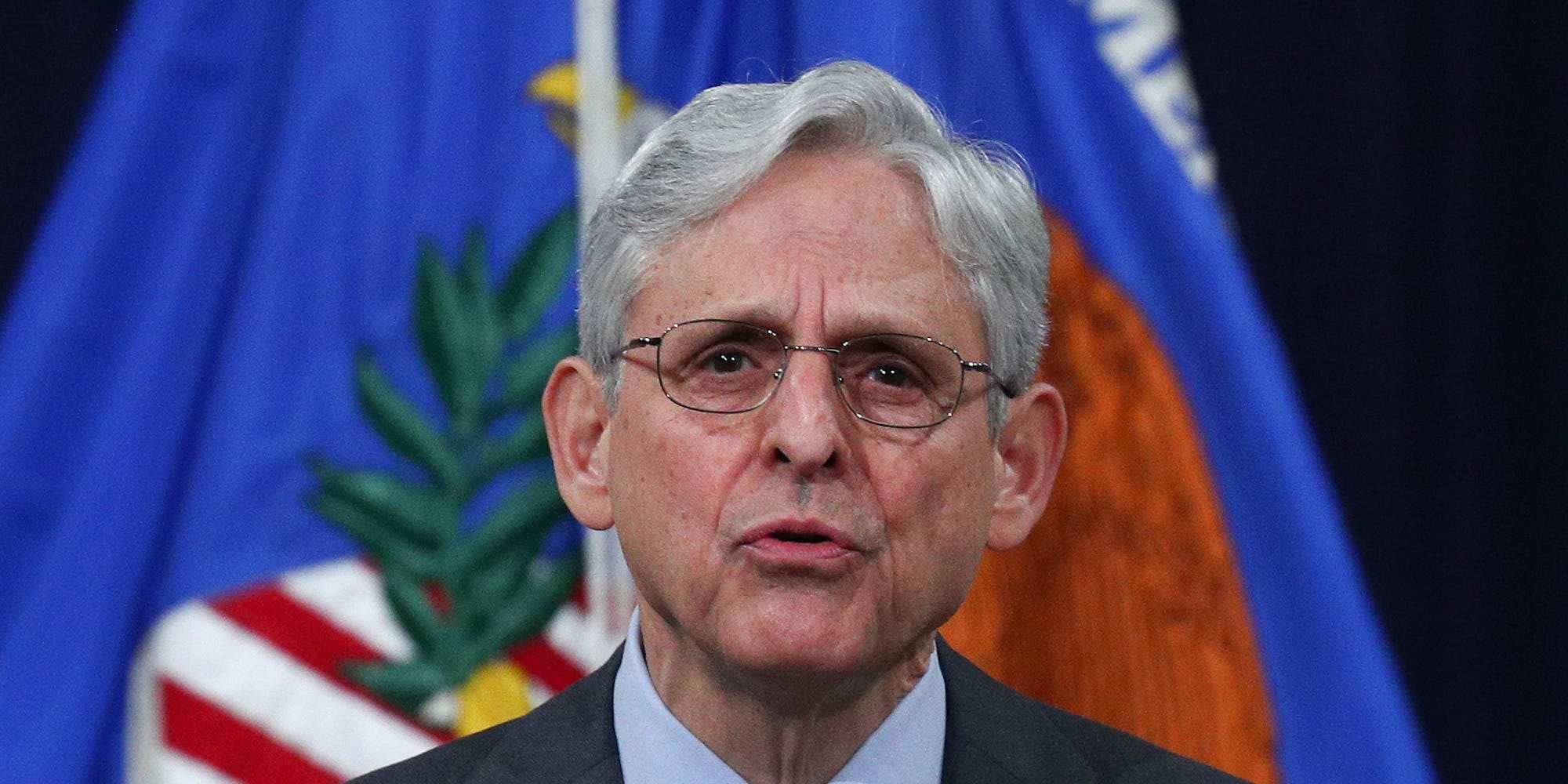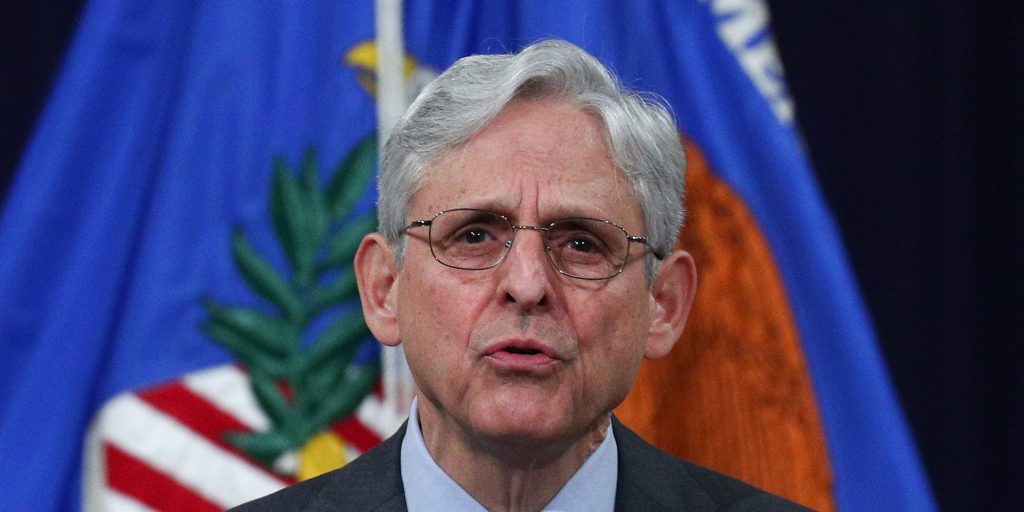
Tom Brenner/The New York Times via AP, Pool
- AG Merrick Garland says GOP-backed ballot reviews are "based on disinformation."
- A controversial ballot recounting exercise in Arizona is inspiring other efforts around the country.
- Garland said the DOJ will double the number of staff tasked with voting rights enforcement.
- See more stories on Insider's business page.
Attorney General Merrick Garland rebuked GOP-backed sham audits and ballot reviews as "based on disinformation" and said the Department of Justice will recommit efforts to combatting voter suppression in a Friday afternoon speech.
Arizona is now nearly two months into an unprecedented and highly controversial recounting exercise of millions of ballots in Maricopa County, which Garland mentioned without naming the county or the state.
"Some jurisdictions, based on disinformation, have utilized abnormal post-election audit methodologies that may put the integrity of the voting process at risk and may undermine public confidence in our democracy," he said.
"The Justice Department will do everything its power to prevent election fraud and to vigorously prosecute it," Garland added. "But many of the justifications proffered in support of these post-election audits and restrictions on voting have relied on assertions on material vote fraud in the 2020 election that have been refuted by law enforcement and intelligence agencies…many of the changes are not even calibrated to address the kinds of voter fraud that are alleged as justification."
Garland also announced that the Civil Rights Division would double its staff working on voting rights enforcement in the next 30 days and publish more federal guidance amid the backdrop of the Arizona recount, similar efforts to review and examine ballots in other states, and a nationwide wave of GOP-backed laws cracking down on voting and election officials.
The Arizona state Senate, using its subpoena power, took control of 2.1 million ballots cast in the 2020 presidential election in Maricopa County and hundreds of machines and turned everything over to a controversial Florida-based firm called Cyber Ninjas that has no experience in election audits, and has been widely criticized for its practices.
Pamela Karlan, Principal Deputy Assistant Attorney General from the DOJ's Civil Rights Division, sent a letter to Arizona State Senate President Karen Fann in late April warning that Cyber Ninjas having custody of the ballots for an undetermined amount of time may run afoul of federal elections laws requiring election officials to preserve ballots for 22 months after an election.
She also warned that a subsequently-scrapped plan to knock on voters' doors in order to hunt down suspected cases of voter registration fraud could violate anti-voter intimidation provisions in the Civil Rights Act.
Some officials and advocates have called for the DOJ to intervene even more forcefully and put a stop to the exercise. But as Insider's Camila DeChalus recently reported, such actions would need to strike a tricky balance to avoid giving off the appearance of the Biden administration trying to influence the outcome.
Republican and Democratic officials in the state, along with outside experts, say that the recount's processes are sloppy, inconsistent, and look nothing like how a proper election audit should proceed.
The procedures include examining ballots with UV lights to search for nonexistent watermarks and searching for bamboo fibers in ballots because of a baseless conspiracy that thousands of ballots were smuggled to Arizona from China.
Lawmakers and Republicans are now trying to undertake similar ballot reviews in states including Georgia, Pennsylvania, and Wisconsin, a trend that has concerned and alarmed experts. State legislators from around the country have made the trip out to the Veterans Memorial Coliseum in Phoenix to check out the recount and meet with Arizona Republicans.
In his speech, Garland also called on Congress to restore federal preclearance under the Voting Rights Act of 1965 that required states and jurisdictions with a history of discrimination to seek permission from the DOJ before enacting new voting laws.
The Supreme Court struck down the formula used to determine which jurisdictions were covered under the act in its 2013 decision in Shelby County v. Holder, making it now eight years without federal preclearance.
Garland said that preclearance had been the DOJ's "most effective tool to protect voting rights over the past half-century."
A bill currently in Congress, the John Lewis Voting Rights Advancement Act, would reestablish federal preclearance but is unlikely to pass due to lack of GOP support.

